DataOps Platforms: The Future of Data Management
Why is DataOps essential today? Well, the data landscape has grown complex, demanding efficient management and integration. With DataOps, agility becomes your best friend, allowing you to adapt swiftly to changing business needs. It breaks down silos, encourages collaboration, and automates processes to boost efficiency. Data governance? Check. Compliance? Sorted. Plus, real-time monitoring keeps your data flowing smoothly.
In this blog post, we'll explore the world of DataOps, the types of platforms driving it forward, and the common challenges faced in traditional setups. And, don't miss the grand finale—a look at Arkon Data Platform, where data operations and business processes unite seamlessly for a data revolution.
Understanding DataOps
What is DataOps?
DataOps, a combination of "data" and "operations," is an emerging discipline that aims to streamline and automate the entire data lifecycle, from data collection to analysis and application. It brings together people, processes, and technologies to ensure that data operations are efficient, reliable, and scalable. In essence, DataOps is the methodology that enables organizations to become more data-driven and make data-based decisions with ease.
Why is DataOps essential in the modern data landscape?
DataOps is essential in the modern data landscape for several reasons:
- Increasing data complexity: With the proliferation of data sources and formats, managing and integrating data has become more complex. DataOps provides a framework and set of practices to streamline data operations and ensure data quality.
- Agile and iterative development: DataOps enables organizations to adopt agile and iterative development methodologies for data projects. It allows for faster development cycles, quicker time to market, and the ability to respond to changing business needs.
- Collaboration and cross-functional teams: DataOps promotes collaboration between data engineers, data scientists, analysts, and other stakeholders involved in the data lifecycle. It breaks down silos and encourages cross-functional teams to work together, leading to better outcomes and faster decision-making.
- Automation and efficiency: DataOps emphasizes automation and the use of tools and technologies to streamline data processes. This reduces manual effort, minimizes errors, and improves overall efficiency in managing and processing data.
- Data governance and compliance: DataOps helps organizations establish robust data governance practices and ensures compliance with data privacy regulations. It provides mechanisms for data lineage, data quality monitoring, and data security, which are crucial in today's data-driven world.
Overall, DataOps enables organizations to effectively manage and leverage data, leading to improved decision-making, increased operational efficiency, and better business outcomes.
Key principles of DataOps.
- Collaboration: DataOps encourages cross-functional collaboration among teams like data engineers, data scientists, and business analysts to ensure efficient data operations.
- Automation: Automation is a cornerstone of DataOps, streamlining tasks like data ingestion and transformation to boost efficiency and data quality.
- Continuous Integration and Deployment: Similar to DevOps, DataOps promotes incremental releases for data pipelines and analytics solutions, reducing errors and accelerating value delivery.
- Version Control: Managing changes to data pipelines, code, and configurations is crucial in DataOps, ensuring reproducibility and data lineage maintenance.
- Monitoring and Observability: DataOps prioritizes monitoring and observability to track performance, implement alerts, and resolve issues swiftly.
- Data Governance: DataOps instills data governance practices to maintain data quality, security, and compliance through standards, lineage, and access controls.
- Continuous Learning and Improvement: DataOps fosters a culture of learning and improvement, using feedback, metrics, and post-mortems to drive iterative enhancements.
Exploring DataOps Platforms
In today's data-driven world, managing and optimizing data operations is paramount. DataOps platforms have emerged as a critical solution to streamline data processes and maximize their potential.
DataOps platforms are at the forefront of modern data management. They provide a unified ecosystem for orchestrating data pipelines, facilitating collaboration among diverse teams, and ensuring data quality and governance. Discover how these platforms revolutionize data operations, from ingestion to analytics.
Types of data platforms
Data platforms in the realm of DataOps encompass a wide spectrum of specialized tools and solutions. These are just a few examples:
- DataOps Platforms are tailored for seamless data processes, team collaboration, and data governance, serving as a comprehensive toolkit for managing and optimizing data operations.
- Data Transformation Platforms facilitate the conversion of data from one format to another, essential for data integration and analysis workflows.
- Data Lineage Platforms offer a holistic view of data's journey, vital for maintaining data quality, compliance, and understanding its origins.
- Data Orchestration Platforms automate and scale data workflows, ensuring efficient data movement and processing.
- Unified Data Integration Platforms provide a single comprehensive view of data, simplifying data management and analytics.
- Data Quality Platforms focus on data accuracy and consistency, performing tasks like validation and cleansing for trustworthy data in analytics and decision-making.
- Data Catalog and Metadata Management Platforms centralize metadata for efficient data asset discovery, understanding, and governance.
- Data Observability Platforms specialize in real-time monitoring and issue resolution for data pipelines, ensuring data flows efficiently and aligning with DataOps principles.
These platforms collectively support the goals of DataOps, which include enhancing data quality, fostering collaboration, and maintaining the reliability of data operations.
List of Leading DataOps companies
DataKitchen:
DataKitchen is a robust DataOps platform designed to automate and orchestrate data workflows for organizations. With its unified control center, it simplifies the management of the complete data lifecycle – from data preparation to model deployment.
Dbt:
Dbt emerges as a vital data transformation tool that simplifies the construction and maintenance of reliable data pipelines. Its user-friendly design empowers data analysts and engineers to focus on their core tasks, fostering efficiency and agility.
Hightouch:
Hightouch redefines data orchestration, making it accessible to all. Their platform offers an intuitive drag-and-drop interface for the effortless creation and management of data pipelines, enabling users of all skill levels to harness the power of data.
Atlan:
Atlan introduces a game-changing data observability platform, facilitating the seamless monitoring and troubleshooting of data pipelines. With a centralized view of all data assets, organizations can swiftly identify and resolve any potential issues, ensuring data flows smoothly.
Census:
Census shines as a comprehensive data lineage platform that empowers organizations to track data flow throughout their systems. It offers a clear understanding of data origins and destinations, enabling users to proactively address data quality concerns.
Astro by Astronomer:
Astro by Astronomer reimagines data orchestration for the cloud-native era. Their platform, built with a serverless approach, facilitates the rapid and effortless deployment of scalable data pipelines.
Databricks Lakehouse Platform:
The Databricks Lakehouse Platform stands as the pinnacle of data integration, offering a unified ecosystem for data engineering, analytics, and machine learning. With a single, comprehensive view of all data, users can effortlessly access and analyze it, propelling data-driven decision-making to new heights.
Common problems and challenges in DataOps platforms:
Traditional DataOps platforms often face several challenges, including:
- Complexity and Silos: These platforms can be intricate, with different tools and processes isolated from each other. This complexity leads to inefficiencies, increased operational overhead, and difficulties in scalability and maintenance.
- Limited Scalability: Some traditional platforms struggle to handle the expanding volume and diversity of data. Scaling requires substantial effort and resources, slowing down growth.
- Long Deployment Cycles: Setting up and configuring traditional platforms consumes time, delaying data pipeline and analytics project implementation.
- High Maintenance Overhead: Significant maintenance, including patching, updates, and infrastructure management, diverts resources from strategic tasks.
- Lack of Automation: Traditional platforms often lack robust automation capabilities, resulting in manual, error-prone processes and slow responsiveness to changing data demands.
- Limited Collaboration: Collaboration among different teams, such as data engineers, data scientists, and business analysts, is challenging. Communication gaps hinder cross-functional teamwork.
- Data Governance Challenges: Ensuring data governance and compliance is difficult. Manual efforts are required to track data lineage, enforce access controls, and manage auditing.
- Difficulty in Monitoring: Traditional DataOps platforms may lack advanced monitoring and observability features, making issue identification and resolution time-consuming.
- Vendor Lock-In: Some platforms lock organizations into specific vendors or technologies, limiting flexibility and causing vendor dependency.
- Cost Overruns: Traditional platforms may lead to unexpected cost overruns due to licensing, hardware, and infrastructure expenses.
- Adaptation to Modern Data Needs: These platforms struggle to adapt to evolving data requirements, hindering quick integration of new data sources, formats, or analytical tools.
- Data Latency: Batch-oriented processing in traditional platforms introduces data latency, impacting real-time or near-real-time analytics.
- Separation of Business Processes and Data Operations: Traditional setups often separate business processes and data operations, leading to inefficiencies and disjointed workflows. Bridging this gap is crucial for streamlined data operations.
Organizations can address these issues by exploring modern DataOps approaches and platforms that prioritize automation, scalability, flexibility, collaboration, and the integration of business processes and data operations. These contemporary solutions aim to overcome the limitations of traditional DataOps platforms, enabling more effective data operations management and optimization.
Business Operations and DataOps in the same place: Break down barriers by seamlessly integrating business processes and data operations.
Unlock Seamless Data Operations and Business Process Integration with Arkon Data Platform
Tired of the challenges posed by traditional DataOps platforms? Meet Arkon Data Platform—a game-changer in data management and process integration.
- Unlock Seamless Integration: Embrace unified data operations and business process integration with Arkon Data Platform.
- Simplify Complexity: Bid farewell to silos and operational inefficiencies; streamline data operations and processes in one unified solution.
- Scale Effortlessly: Ensure scalability without limits, prepared for the future.
- Lower Maintenance Overhead: Automate maintenance tasks, freeing up resources for strategic endeavors.
- Harness Automation: Boost efficiency with robust automation capabilities; respond swiftly to changing data needs.
- Enhance Collaboration: Foster seamless collaboration among teams, promoting cross-functional teamwork.
- Ensure Governance: Achieve data governance effortlessly; automate data lineage tracking, access control enforcement, and auditing.
- Monitor Precisely: Gain real-time insights with advanced monitoring features for swift issue resolution.
- No Vendor Lock-In: Enjoy freedom and flexibility, breaking away from vendor dependency.
- Stay Future-Ready: Seamlessly integrate new data sources, formats, and analytical tools.
Conclusion:
As the data landscape continues to evolve, adopting a DataOps approach supported by a robust DataOps platform is becoming increasingly crucial for organizations seeking to stay competitive and agile. By embracing DataOps principles, tools, and strategies, businesses can unlock the true potential of their data, drive innovation, and make more informed decisions.


